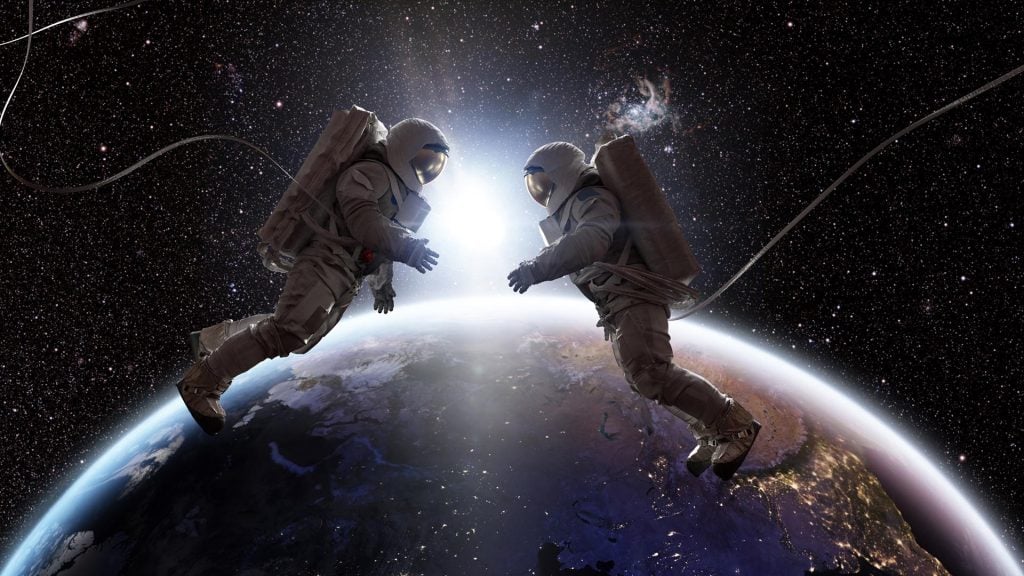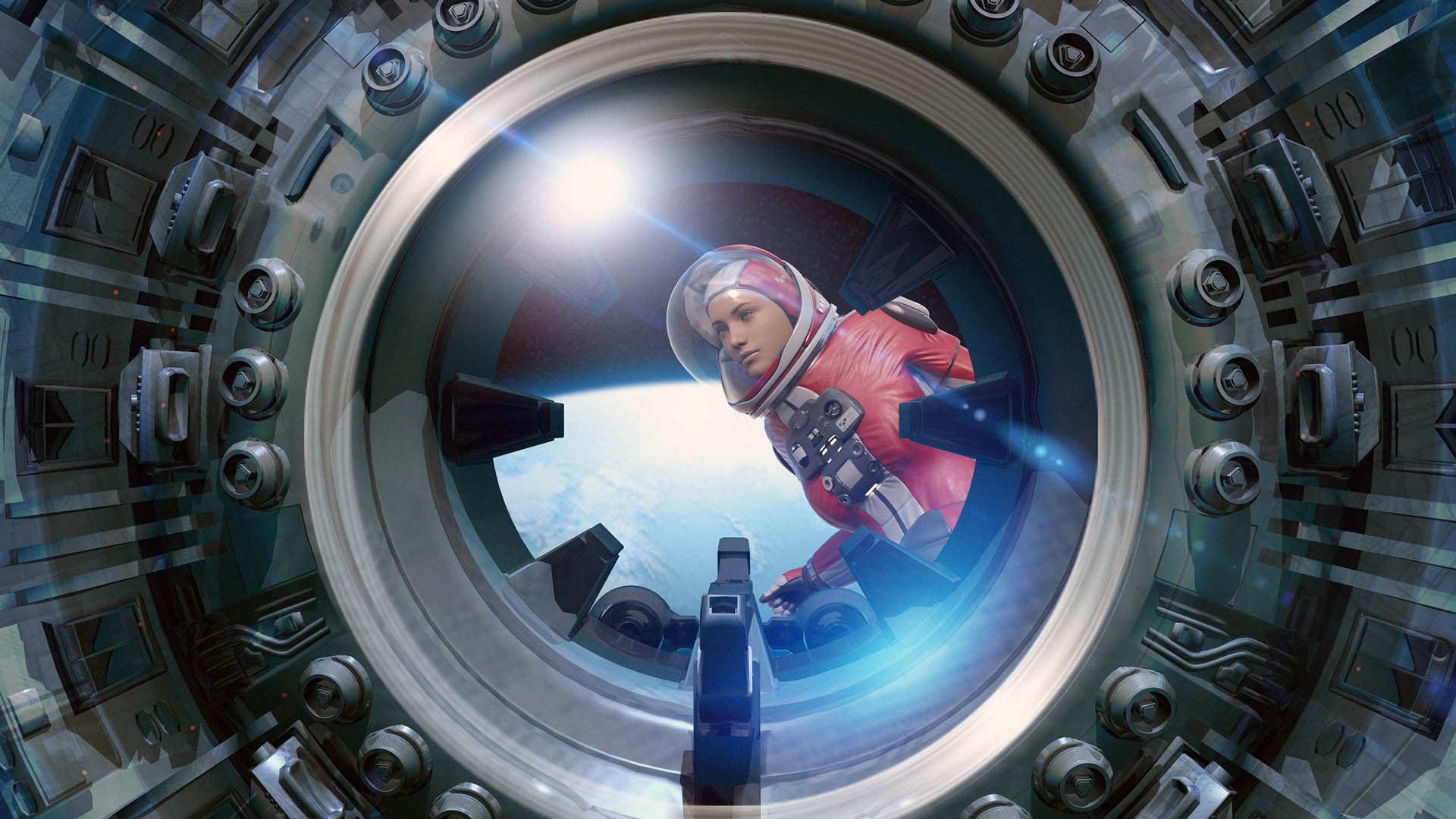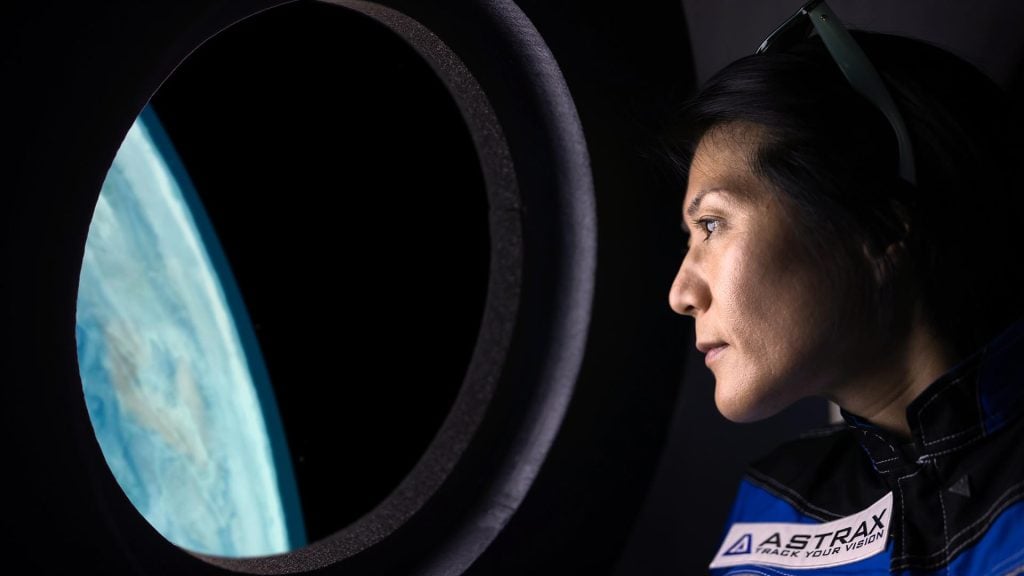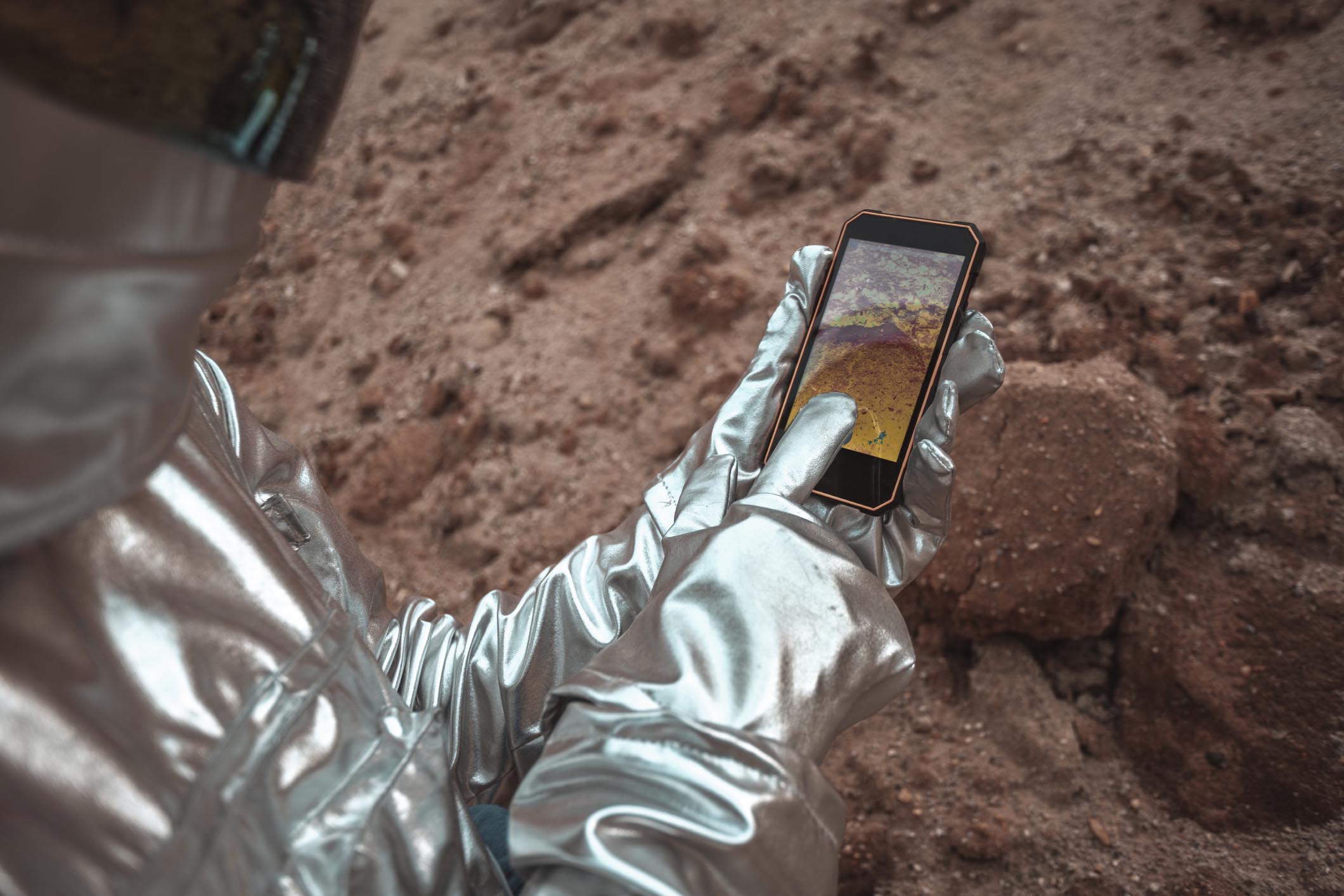
Space dates by 2050 and finding love on Mars
By 2050, the first dates will take place on the moon for those lucky enough able to afford a golden ticket, and by 2120 dating on Mars will be established. This is according to research commissioned by eharmony in collaboration with MSc students at Imperial College Business School, which used extensive literature reviews and detailed analysis and extrapolation of more than 100 years of data.
These powerful experiences will result in intense romantic bonds between new couples, and act as critical opportunities for evaluating compatibility. These predictions are supported by public opinion with over one in four 18 to 34 year olds polled agreeing that space dating is a realistic proposition in the next 25 years.

OVER 1 IN 4
18 TO 34-YEAR-OLDS AGREE SPACE DATING MIGHT BE POSSIBLE
WITHIN 25 YEARS
Since the first satellite launched in 1957 by the Soviet Union, followed by Neil Armstrong’s first step on the Moon in 1969, space technology has shown enormous advances. It’s likely that this trend will keep accelerating. The future of online dating also looks promising, with over two thirds (68%) of those polled agreeing technology will continue to be an important factor in the way people meet and pursue relationships in the future.
Space timelines
Space exploration will boom in the coming decades, as tech giants like Elon Musk’s SpaceX and Amazon’s Blue Origin forge a competitive new era in commercial travel. Nasa also has immediate plans to return to the moon to explore 60 miles of lunar surface.
Such adventures may also challenge immediate fears surrounding climate change, as scientists seek to secure new settlements within our solar system. It’s predicted that in little more than a quarter of a century, there will be a permanent base on the moon with a steady supply of short-term visits from commercial rockets.
At this point there will be key opportunities for thrill-seeking singles who want to sample an out-of-this-world experience. But buyer beware, the cost is likely to be high, with Virgin Galactic currently proposing prices of around £390,000 simply to take customers on trips around the earth’s surface. Meanwhile, the first human trip to Mars is likely to take place by 2040, following a crew of six robotic rovers sent last year, though due to the red planet’s vast distance from earth and harsh climate, these events will be challenging.
However, following ambitious colonisation projects at the tail end of this century, romantic dates and holidays on Mars will not only be feasible by 2210, but could happen in parallel with human settlements, with five-star living accommodation and leisure facilities all housed on the red planet.

Space dates and intimacy
A key advantage of space dates will be an opportunity for forging deeper romantic bonds as couples experience intense emotions such as excitement, fear, and protectiveness together. Indeed, over a third (33%) of Brits polled agree that adrenaline-inducing dates (e.g., bungee jumping and rock climbing) boost arousal and attraction bringing them closer to prospective partners.
Certainly, the predicted three-month trip to Mars will give keen daters a lengthy opportunity to get to know each other and measure their compatibility as they rocket through the galaxy together. Psychologists believe singles on space dates are also likely to experience something called ‘the misattribution of fear’. This term comes from a scientific study in 1974, which found that men who’d crossed a shaky suspension bridge were more likely to be attracted to a woman waiting for them, than those who ventured across a sturdy bridge. This demonstrated that sexual attraction was more likely to happen in the presence of anxiety or danger.
A previous study in 1964 also found that when our adrenaline is triggered, our brains map these intense feelings to cues in our environment, including people. Crucially, couples going on space dates will need to demonstrate positive traits such as confidence and empathy and when the stress levels spike, good conflict resolution skills. Space travel will be an effective way of evaluating a couple’s compatibility in a high-pressure situation and it might be that dating apps like ours eventually fly members into the galaxy for awe-inspiring trips. Sub-orbital dates would suit more extrovert, adventurous singles with large reserves of confidence and adaptability.
Facilities on Mars
While dates on the moon are not far round the corner, Mars still holds the key to more comprehensive dating experiences and romantic holidays. Due to its rotational axis the red planet has similar seasons and daylight hours to earth, making it a practical space destination. This is good news to almost half (45%) of 16-34 years olds, who say they’d definitely be up for living in a colony on Mars.
Hospitality brands such as hotels.com visualise couples enjoying luxury hotels and restaurants with swimming pools, AI concierges; holographic wake-up calls; robot bellboys and minibars stocked with cocktails like Martian Martinis and Cosmic Cosmopolitans. However, because Mars’ temperature is on average -63C and is battered by regular dust storms space enthusiasts such as SpaceX boss Elon Musk envisage giant glass-domes forming protective oxygenated bubbles around buildings. Coupled with robotic mining of water, and the creation of protected oxygen zones, there is every reason to assume new life there will thrive.
